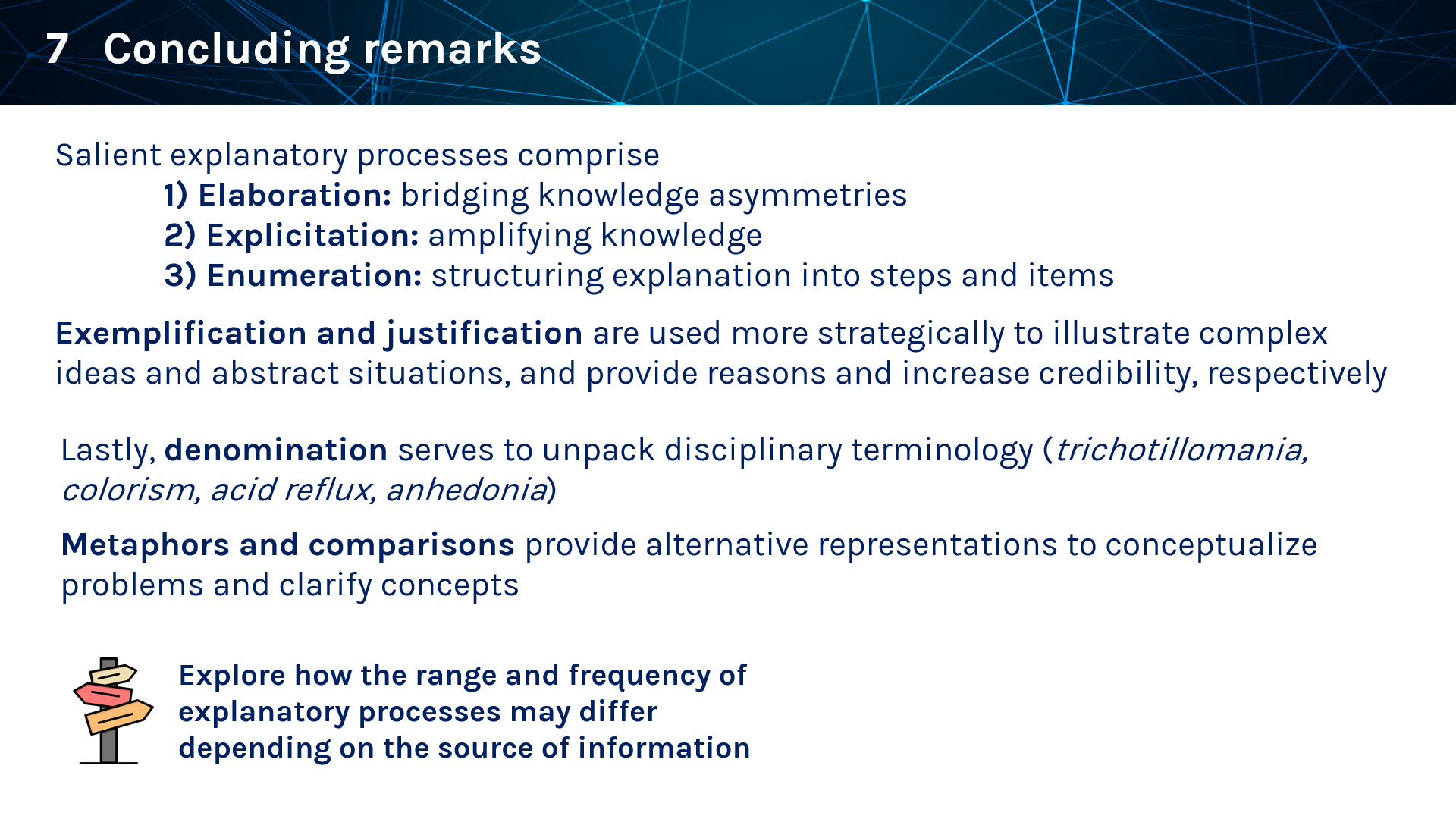ICAME 46: DANIEL PASCUAL ANALYSES EXPLANATORY STRATEGIES IN ASK AN EXPERT SITES

Dr Daniel Pascual participated at the 46th International Computer Archive of Modern and Medieval English Conference (ICAME), which took place over the span of five days (17th-21st June 2025), at the Faculty of Philology, Vilnius University. The main focus of this 46th edition of ICAME revolved around exploring corpora, English and the latest in corpus linguistics.
Dr Pascual’s presentation was entitled “Explanatory processes in Ask an Expert websites on psychology and mental health”. There, he analysed recontextualising discursive processes that were present in a sample of 100 texts from four Ask an Expert sites, reporting on both quantitative and qualitative results as regards exemplification, explicitation, elaboration, enumeration and comparison/analogy strategies.
You can read more about his abstract here:
Explanatory processes in Ask an Expert websites on psychology and mental health
Psychological issues and mental health have gained tremendous relevance in daily life and, consequently, in public discourse and digital interactions. Users frequently seek advice and trustworthy information to satisfy their curiosity and address pressing concerns. However, the growing prevalence of online misinformation and harmful practices poses challenges for users searching for reliable resources. Within this context, Ask an Expert practices offer valuable spaces where qualified professionals, validated for their expertise and academic credentials, respond to user queries. Ask an Expert practices have been examined in specific domains like healthcare (Pounds 2018) and environmental sustainability (Pascual 2025), there is a need to explore how specialised knowledge is adapted and presented in these practices when distributing information on psychological and mental health issues to a diverse audience of non-experts users. This research also complements recent studies on other digital practices geared towards dissemination in psychology, like research digests (Lorés 2024).
This study aims, first, to identify the use and frequency of verbal explanatory processes employed by professionals on Ask an Expert websites to recontextualise psychological and mental health information. Second, it examines how these processes are realised through specific discursive mechanisms. To that end, a corpus of 100 texts retrieved from four prominent sources (GoAskAlice!, IDONTMIND, PsychHelp and Child Mind Institute) has been compiled from the SciDis Database, which is a collection of digital practices exemplifying contemporary scientific dissemination (Pascual and Sancho-Ortiz 2024). The four websites selected are characterised by including a devoted section in which professionals working for universities and accredited associations take up users-submitted questions on psychological concerns. The analysis rests on Mur-Dueñas’ (2024) taxonomy of explanatory processes for the field of economy, including exemplification, explicitation, elaboration, enumeration, and comparison/analogy. Using the qualitative analysis software NVivo12, the study identifies how these processes work in the field of psychology, and examines their frequency and implementation in general terms as well as across the four websites chosen. Findings show connections between such explanatory processes and specific discursive mechanisms (lexico-grammatical, syntactic, orthotypographic), and illustrate how experts support the simplification and easification of presumably complex concepts when fostering knowledge dissemination to non-expert audiences. Overall, this paper sheds light on experts’ assumptions regarding users’ information needs and, more interestingly, offers guidance for professionals to leverage discursive strategies and mechanisms, which they can use to bridge knowledge gaps and make psychological information more accessible and impactful for diversified digital audiences.
References
Lorés, Rosa (2024), Digesting psychology: Metadiscourse as a recontextualizing tool in the digital communication of disciplinary research, Chinese Journal of Applied Linguistics 47(2), 178–195. https://doi.org/10.1515/CJAL-2024-0202
Mur-Dueñas, Pilar (2024), Digital dissemination practices: An analysis of explanatory strategies in the process of recontextualising specialised knowledge, Discourse & Interaction 17(1), 94–114. https://doi.org/10.5817/DI2024-1-94
Pascual, Daniel (2025), Dialogic markers in Ask an Expert webpages on environmental discourse, Language & Dialogue 15(1), 156–181. https://doi.org/10.1075/ld.00191.pas
Pascual, Daniel and Ana Eugenia Sancho-Ortiz (2024), Investigating recontextualisation processes in scientific digital practices: The SciDis database, Revista Electrónica de Lingüística Aplicada 23(1), 101–118.
Pounds, Gabrina (2018), Patient-centred communication in Ask-the-Expert healthcare websites, Applied Linguistics 39(2), 117–134. https://doi.org/10.1093/applin/amv073
